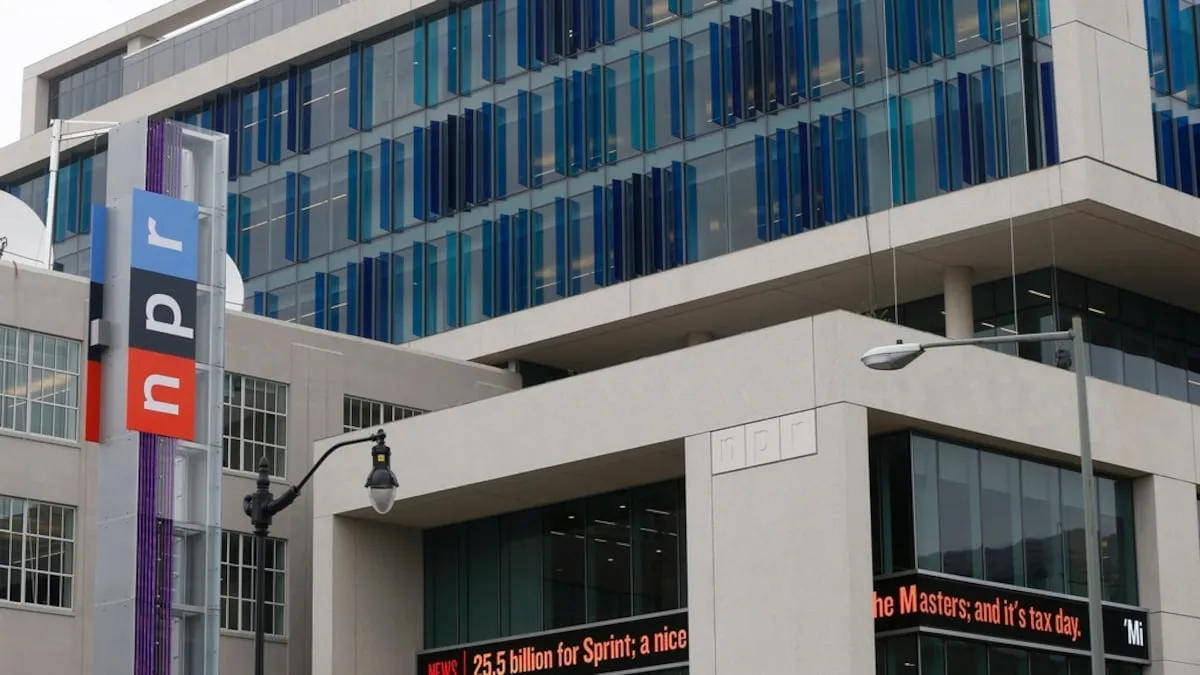
The U.S. House of Representatives narrowly voted on Thursday to implement a significant spending cut amounting to approximately $9.4 billion. This decision comes as the Trump administration aims to align with initiatives promoted by the Department of Government Efficiency during the leadership of Elon Musk. The proposed rescission package primarily targets foreign aid programs and funding for the Corporation for Public Broadcasting, which supports vital services such as National Public Radio (NPR) and the Public Broadcasting Service (PBS), alongside numerous public radio and television stations nationwide. The final vote stood at 214-212.
In Oregon, the state’s congressional delegation saw all five Democratic representatives oppose the rescission of funding, while the lone Republican, Rep. Cliff Bentz, supported the measure. This division highlights the ongoing debate over federal spending priorities. Related discussions emphasize that federal funding for Oregon Public Broadcasting (OPB) and public media is currently at significant risk, prompting advocacy for action from concerned citizens.
Republicans argue that the expenditures in question are wasteful and unnecessary, advocating for fiscal responsibility. Conversely, Democrats warn that the proposed cuts could undermine the United States' global standing and result in preventable suffering and deaths. Democratic leader Hakeem Jeffries of New York described the spending cuts as an embodiment of cruelty, underscoring the moral implications of such fiscal decisions.
The Trump administration is utilizing a legislative tool, seldom employed in recent years, that allows the president to formally request Congress to cancel previously appropriated funds. This action initiates a 45-day period during which the funds are frozen, pending congressional decision. If Congress does not act within this timeframe, the spending remains intact. Rep. Lisa McClain, the House Republican Conference chair, articulated that this rescission package would return $9.4 billion to the U.S. Treasury, asserting that it represents savings for taxpayers that would otherwise be wasted.
The advantage of a formal rescission request is that it requires only a simple majority in the 100-member Senate, as opposed to the typical 60 votes needed for spending legislation. If Republicans maintain their cohesiveness, they could pass this measure without any Democratic support. Senate Majority Leader John Thune of South Dakota indicated that the Senate may not address the bill until July, after focusing on the administration's comprehensive tax and immigration proposals. Additionally, he mentioned that the Senate could consider modifications to the bill.
The administration views this first rescission package as a potential precursor to more substantial cuts, depending on Congress's response. Republicans, aware of the need for spending discipline in light of concerns about Trump's extensive tax and immigration reform initiatives contributing to future federal deficits, are keen to showcase fiscal restraint. They believe these cuts will resonate well with constituents who support Trump’s “America First” agenda and those who perceive NPR and PBS as exhibiting a liberal bias.
The rescission package encompasses 21 proposed cuts, seeking to reclaim roughly $900 million from the $10 billion allocated by Congress for global health initiatives. Notably, it includes the cancellation of $500 million designated for combating infectious diseases and improving child and maternal health, alongside an additional $400 million aimed at addressing the global HIV epidemic. Furthermore, the administration seeks to rescind $800 million, or one-quarter of the previously approved funding, for a program that offers emergency shelter, water, sanitation, and family reunification assistance for displaced individuals.
Approximately 45% of the savings sought would be derived from two programs intended to bolster the economies, democratic institutions, and civil societies of developing nations. Democratic leaders, while rallying their members to oppose the rescissions, emphasize that these cuts would deny over 3.6 million people access to clean water and deprive countless others of educational opportunities.
In addition to foreign aid, the Trump administration is requesting that lawmakers rescind nearly $1.1 billion from the Corporation for Public Broadcasting, a figure that represents the total funding allocated for the next two fiscal years. Approximately two-thirds of this funding supports over 1,500 locally owned public radio and television stations, many of which serve rural communities. The association representing these local public broadcasters warns that the passage of the Republican measure could lead to the closure of numerous stations, which play critical roles in delivering emergency alerts, educational programming, and local sports coverage.
Advocacy organizations focused on aiding the world’s most impoverished populations are also raising alarms about the implications of these cuts. Abby Maxman, president and CEO of Oxfam America, a prominent anti-poverty organization, stated that previous aid reductions have already left vulnerable families without essential resources such as food and clean water.
Rep. Jim McGovern of Massachusetts emphasized that foreign aid serves as a crucial tool for preventing conflict and fostering global stability. He warned that the proposed cuts could lead to widespread suffering, potentially resulting in the deaths of hundreds of thousands of individuals reliant on international assistance. Similarly, Rep. Steve Cohen from Tennessee criticized the bill, suggesting it would benefit adversarial nations like Russia and China.
While Republicans have derided foreign aid expenditures, linking them to programs they claim were uncovered by the Department of Government Efficiency (DOGE), they maintain that taxpayer dollars should not fund what they consider frivolous initiatives. Rep. Chip Roy of Texas urged his colleagues to reject the idea that failing to subsidize these programs would harm individuals globally or diminish the United States' standing in the world.
The House's narrow vote to cut $9.4 billion in previously approved spending has sparked a contentious debate about the role of federal funding in both domestic and international contexts. As the Senate prepares to consider the measure, the implications of these cuts will be closely watched, especially by those advocating for public media and foreign aid. The ongoing discussion underscores the complexities of balancing fiscal responsibility with the moral imperatives of supporting vulnerable populations both at home and abroad.